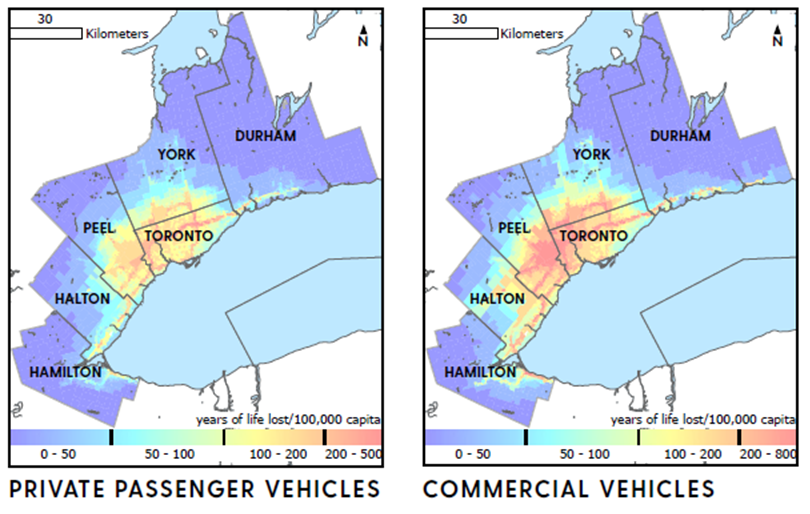Theme 2: Logistics Network Design for New E-commerce Delivery Models
Theme 2: Logistics Network Design for New E-commerce Delivery Models
The volume of e-commerce shopping continues to increase but details of the demand and the congestion, environmental and economic impacts of single-package delivery are not understood. Projects in this theme develop data resources and analyses to assess trends in delivery demand resulting from e-commerce, their social, environmental and economic impacts and methods for the reduction of these impacts.
Project Leaders

Dr. Elkafi HassiniProfessorDegroote School of Business, McMaster University
Projects:
Project 2.1: Behavioral Location Models for Last-Mile E-commerce Deliveries
Project 2.2: Mitigating the Impacts of E-commerce in Neighbourhoods
Project 2.5: Logistics Models of Novel Last-Mile Delivery Systems

Dr. Merve Bodur
Assistant ProfessorMechanical & Industrial Engineering, University of Toronto
Projects:
Project 2.4: Optimization of Crowd-shipping with Mobile Drop-off Points

Dr. Marianne Hatzopoulou
Associate ProfessorCivil & Mineral Engineering, University of Toronto
Projects:
Project 2.3: Environmental Justice Impacts of E-commerce

Dr. Mehdi Nourinejad
Assistant ProfessorCivil Engineering, York University
Projects:
Project 2.6: Operational Challenges of Same-day Delivery
Project 2.7: Predictive Analytics in the First Mile to Improve the Last Mile
Partners




Projects

Project 2.1: Behavioral Location Models for Last-Mile E-commerce Deliveries
Led by Dr. Elkafi Hassini
McMaster University
Research Plan: Develop behavioural location models that incorporate residents’ attitudes through a survey. A survey of 1,000 households is being conducted in the GTHA to identify ecommerce purchasing trends for households with different demographic and socioeconomic characteristics. Data is being collected about types of products purchased online, value, and purchase frequency. Participation rates in e-commerce markets by income, age, gender, etc., is improving our understanding of equity aspects of e-commerce. The survey is being designed and run through McMaster University secure survey server. A third party is being hired to recruit participants.
Project Goal: Valuable survey data on e-commerce purchasing trends account for demographic and socioeconomic factors. The data becomes input for location models of last mile delivery. The data and models may inform government decisions on land zoning and economic development plans.

Project 2.2: Mitigating the Impacts of E-commerce in Neighbourhoods
Led by Dr. Elkafi Hassini
McMaster University
Research Plan: Improve understanding of how increasing demand for e-commerce affects quality of life, safety, sustainability and efficiency of movement of traffic in neighborhoods in the GTHA. Survey data from other projects and data from Statistics Canada is being used to develop models to assess the impact of last-mile e-commerce deliveries on residential neighborhoods from economic, environmental and social dimensions.
Project Goal: Based on the analysis of survey data from Project 2.1 and a systematic literature review, models are developed to aid local governments in understanding and mitigating the impacts of e-commerce in neighborhoods.

Project 2.3: Environmental Justice Impacts of E-commerce
Led by Dr. Marianne Hatzopoulou
University of Toronto
Research Plan: Examine the air quality and public health benefits/burden of e-commerce across the population and assess the implications for environmental justice. This project is developing models of freight transportation associated with e-commerce. Data from Project 2.1 and the FDW are used to predict e-commerce deliveries, and reduction in household shopping trips. Using an integrated model for transport emissions, air quality, and public health developed at the University of Toronto, changes in emissions and air quality are quantified. In addition, air pollution health effects are estimated using a comparative risk assessment approach. Air pollution exposure and health outcomes are be examined across the population. Using census data at a dissemination area level, a social disadvantage index is being computed, and the distribution of environmental benefits/burden are assessed through a lens of environmental justice. This analysis determines whether low income, elderly, or racialized minorities disproportionately experience the benefits and burden of e-commerce and home delivery.
Project Goal: An index that captures social disadvantage and vulnerability to air pollution health effects and quantifies the distribution of air quality and health impacts through an equity lens. This knowledge informs the development of e-commerce initiatives that improve environmental justice.

Project 2.4: Optimization of Crowd-shipping with Mobile Drop-off Points
Led by Dr. Mehdi Nourinejad
York University
Research Plan: This project develops novel mathematical models and efficient algorithms for strategic, tactical and real-time decisions associated with the last-mile delivery via crowd-shipping. It works with private partners to provide insights on the efficacy of optimized crowd-shipping operations, and to showcase the importance of incorporating uncertainty into the models. Crowd-shipping recruits commuters to pick up and drop off parcels in their personal vehicles. Crowd-shipping operations, can improve efficiency of last-mile delivery and reduce fuel consumption, congestion and emissions. This project (1) considers vehicle routing problems in crowd-shipping and compare several operational models, (2) proposes a stochastic mobile facility location problem in crowd-shipping, (3) develops static and dynamic models to be used in strategic/tactical planning stages and in real time, respectively, (4) compares crowd-shipping and conventional last-mile delivery systems, using data from private partners as industry case studies.
Project Goal: Novel mathematical models and efficient solution approaches for crowd shipping decision-making problems, problem-specific insights, improvement to Partner operations.

Project 2.5: Logistics Models of Novel Last-Mile Delivery Systems
Led by Dr. Elkafi Hasini
McMaster University
Research Plan: This project develops exact formulations and heuristic solution algorithms to solve multi-level logistics optimization problems for new last-mile delivery models, and applies them to identify cost effective and sustainable applications in the GTHA. Conducts a literature review on home delivery systems. Identifies why such models are not amenable to easily handle new delivery systems such as microhubs, mobile distribution centres, drones, and parcel-lockers. Develops models that are scalable to real-world sized applications.
Project Goal: To develop Optimization techniques available to industry participants and encourage cost effective application of sustainable last-mile delivery systems.

Project 2.6: Operational Challenges of Same-day Delivery
Led by Dr. Mehdi Nourinejad
York University
Research Plan: Same-day delivery of online purchases potentially has large environmental and congestion impacts. This project investigates, using operations research and behavioral models, the challenges of providing efficient and sustainable same-day delivery services. Uses data from Theme 2 (Project 2.1) to develop novel same-day delivery options that reduce urban commercial vehicle traffic. Develops operational models to assist retailers in choosing optimal same-day delivery prices and routing strategies.
Project Goal: Provides best practices support to private partners and evidence-based policy support to government partners to unlock the full potential of sustainable same-day delivery in urban areas.

Project 2.7: Predictive Analytics in the First Mile to Improve the Last Mile
Led by Dr. Mehdi Nourinejad
York University
Research Plan: Last-mile delivery, the movement of goods from hubs to final destinations, makes up 28% of the total cost of transportation (Roca-Riu, 2012). Distributors and logistics firms can better manage the last mile by taking strategic action upstream in the supply chain. Available strategies use inventory management, sales strategies, and historical records to better manage the last mile by making optimal decisions in the first mile. This project is developing tools to better integrate the first and last mile of the supply chain. It creates data-driven models using artificial intelligence that preemptively reduce the cost of the last mile by making optimal decisions in the first mile.
Project Goal: Evidence-based guidelines and tools for private sector partners on how to use artificial intelligence in the first mile to control outcomes at the other stages of the supply chain.
